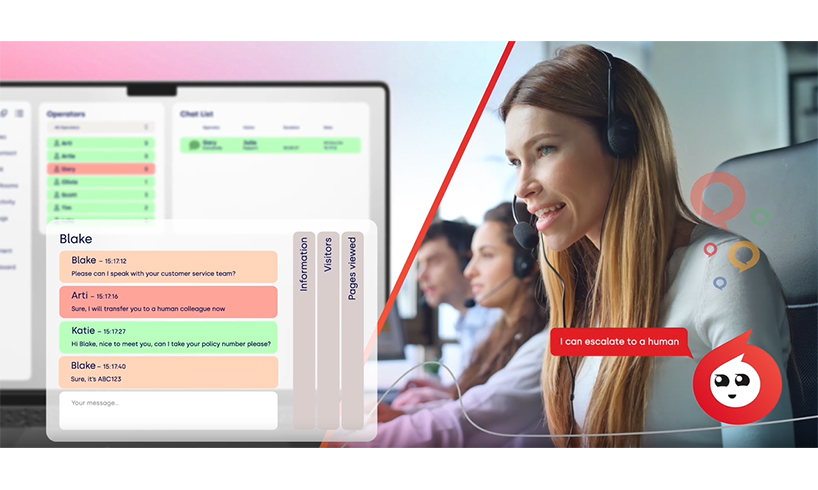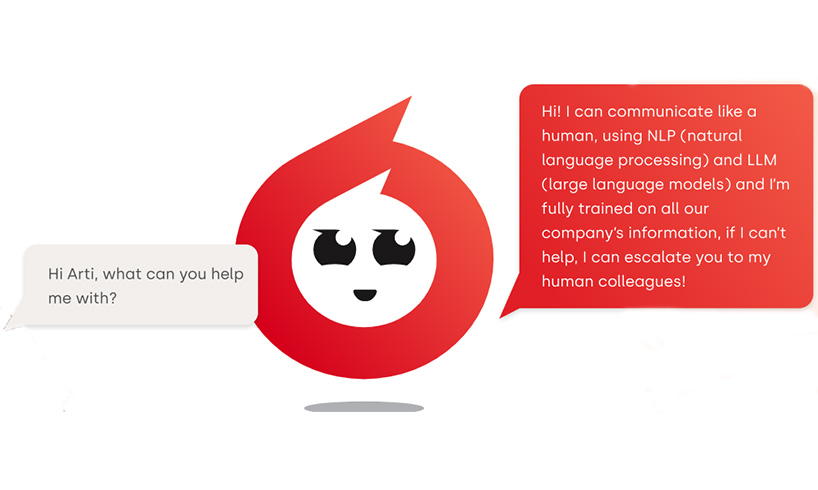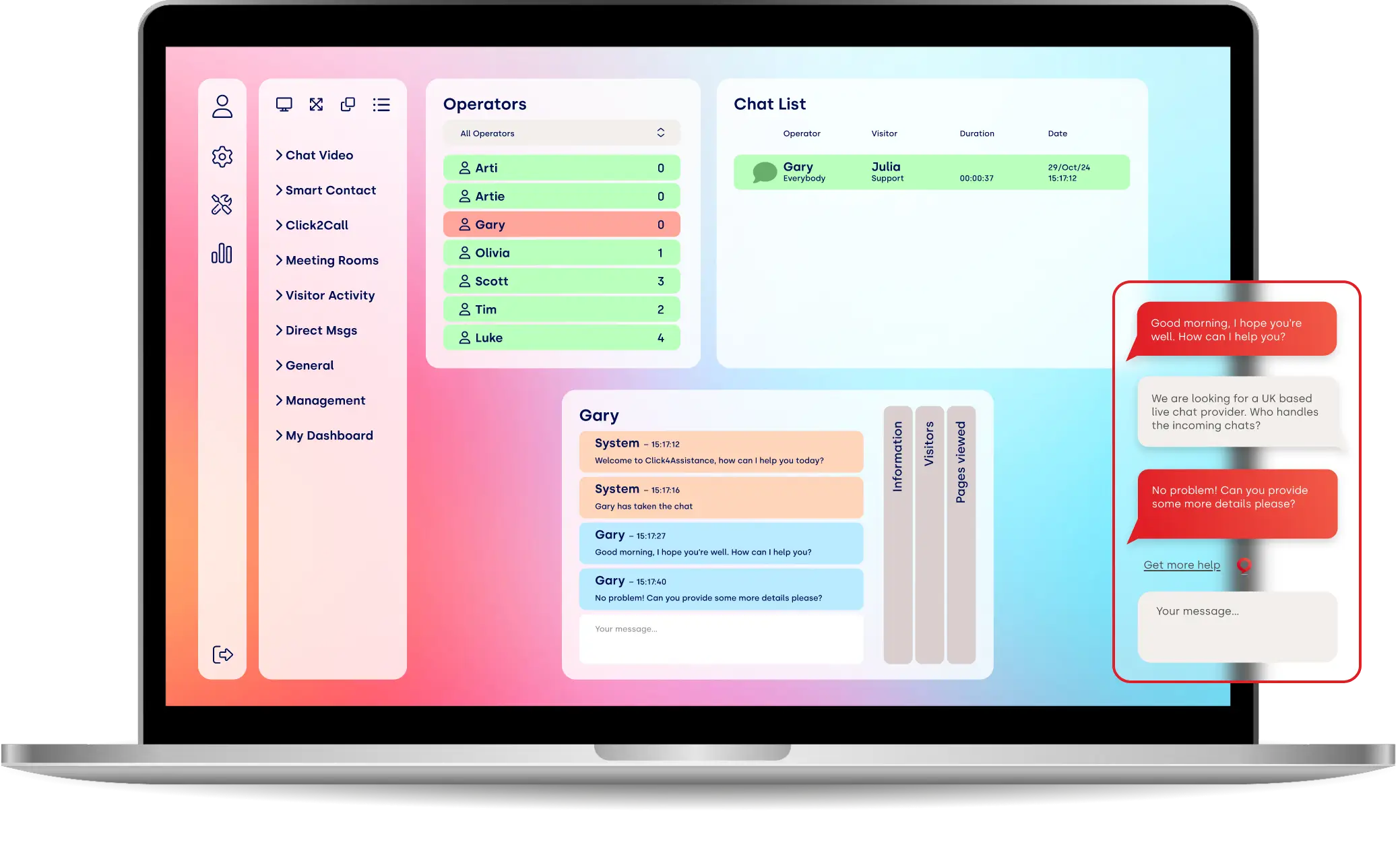Humans Vs Chatbots

Both humans and chatbots have a role to play in customer service. Discover their strengths and weaknesses in this in-depth post.
In this post, we will discuss the benefits of using both humans and chatbots. As you will discover, chatbots have evolved to the point where they can greet customers at low cost and then pass them off to human reps to resolve complex queries.
According to a CGS survey of more than a thousand US customers, 86 percent of people prefer humans to chatbots. For companies wanting to reduce loads on call centres and cut their costs, this statistic is depressing.
But when you dig a little deeper, you soon discover that it is not all bad news. While people say that they prefer humans to chatbots, it usually relates to their expectations of what chatbots can do, not the reality.
For instance, only 30 percent of consumers believe that chatbots make it easier to address their problems. Furthermore, only 29 percent believe chatbots are better at answering quick and simple questions.
However, when you look at the reality of the situation, you discover something rather different. Since launching all the way back in 2004, the Sgt. Star chatbot achieved an average accurate rate exceeding 94 percent - and that was done using old technology. Today, AI is substantially more advanced, so customers regularly underestimate the utility the technology offers.
In this post, we will discuss the benefits of both humans and chatbots. As you will discover, chatbots have evolved to the point where they can greet customers at low cost and then pass them off to human reps to resolve complex queries.
The Benefits Of Chatbots
Here are some of the benefits of chatbots for websites and how they can complement live teams:
Low Cost
Chatbots are incredibly low cost compared to customer service reps. The average call centre agent costs anywhere between £16,000 and £27,000 per year in the UK. By contrast, chatbot platforms set you back anywhere from £350 to £5,000 per year - substantially less expensive.
Naturally, chatbots cannot answer questions that callers pose, so there will be times when you will need to transfer to an agent. But they should be able to weed out callers with easily-answered questions and cut down on overall call volume.
Scalability
Chatbots are also remarkably scalable. Software operates in the cloud, so it can serve unlimited users. You don’t have to build out your systems in response to increased demand.
Compare that to a situation in which you are using human reps. Adding extra capacity typically requires going to a recruitment agency, hiring a new member of staff, providing them with a phone and computer terminal, and arranging their pay and holidays.
Faster Responses
Data suggests that 25 percent of Millennials expect a response to their customer service queries in less than 10 minutes. Any more than that and they will consider going elsewhere. Therefore, companies need systems that allow them to process customer communications rapidly.
Given this reality, chatbots are ideal. They can collect data on behalf of reps and answer simple questions to resolve customers’ issues. They can also keep customers busy with questions while they wait for reps to respond.
Multilingual Capabilities
Routing international customers to reps who speak their language is a notoriously difficult task. However, multilingual chat bots can style their communication based on users’ IP locations.
Multilingual chatbots are more feasible than you might think. Bots capable of speaking the world’s top four to five languages could potentially reach three to four billion people. Most of these individuals would be affluent or up-and-coming consumers living in Western countries or developing markets, making them a high-value target for business.
Rapid Learning
As artificial intelligence technology advances, bots are becoming better at learning. Data collected from customer interactions can improve their ability to provide helpful answers to questions. As this process continues, bots may eventually get to the point where talking to them feels like conversing with a regular rep.
Facebook, for instance, is looking at ways of making chatbot interactions more consistent. The social media giant wants to give chatbots real-time memories of what they say in conversations so that they make more sense. Moving beyond simple programmed responses gives bots freedom to ask questions in a more contextual way.
The Benefits Of Humans
Naturally, chatbots don’t have everything in their favour. There are still substantial benefits of hiring human reps as well.
The Ability To Show Empathy
While chatbots are fun pieces of software, they are still computer programs. There isn’t a conscious entity behind all the zeros and ones, - at least as far as we know. For that reason, chatbots can struggle to show empathy.
Human operators, on the other hand, have no such issues. They can place themselves in customer shoes and use empathetic language to increase loyalty and brand trust.
Cultural Sensitivity
Microsoft released a chatbot called Tay in 2016 to tweet on Twitter. The hope was that the bot would become a showcase of the firm’s technology - and it was. Tay learned precisely in the way the programmers predicted. Unfortunately, it could only learn from the inputs it received from users, so when trolls fed it racist language, it began spitting it back out in its tweets.
Humans, on the other hand, have cultural sensitivity. Our minds allow us to evaluate statements in context. Thus, when a rep talks to a customer on the phone, they can use language that is suitable for the interaction, making sure that they show the proper respect.
Better Tonality
Machine learning algorithms are getting better at imitating human tonality, but they aren’t perfect. Chatbots that use text can’t use tonality at all.
But, again, humans have the upper hand. Reps can use their tone of voice to enhance communication with customers, helping them resolve their problems faster. Emphasis on certain words improves communication quality above standard text.
Final Thoughts: Humans Vs Chatbots
Humans and chatbots are not mutually exclusive in the customer service realm. In fact, the most successful firms take full advantage of the benefits of each. Chatbots are great when you are scaling your enterprise and want to serve customers rapidly, while humans are ideal for solving tough problems and enhancing brand image.























